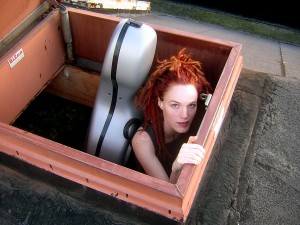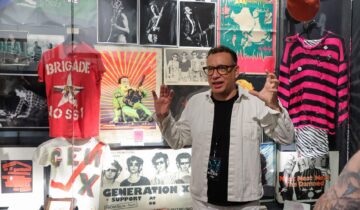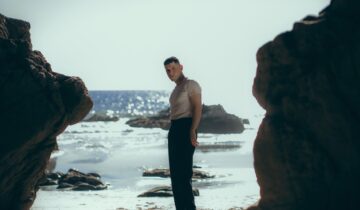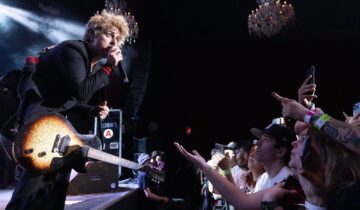 For the ECONOMIST: TALK about the music industry these days is fairly grim. More people may be listening to more music than ever before, but no one seems to know how to make money out of the business. So what can be done about it? This was the question before the entrepreneurs and developers who gathered recently at the SF MusicTech Summit, a twice-yearly event in San Francisco.
For the ECONOMIST: TALK about the music industry these days is fairly grim. More people may be listening to more music than ever before, but no one seems to know how to make money out of the business. So what can be done about it? This was the question before the entrepreneurs and developers who gathered recently at the SF MusicTech Summit, a twice-yearly event in San Francisco.
Much conversation was devoted to improving the live music experience. Fans still crave going to shows, yet increased digital access has led to slumps in live concert attendance. Complacency is a factor (why leave the house when music is readily available from the web?), but many complain that the process of acquiring tickets is increasingly frustrating. Among this sea of optimistic entrepreneurs, developers, coders and flaks was Zoe Keating (pictured), a cellist and one of the few musicians to speak at the event. Her story is a hopeful one. Ms Keating has criticised streaming services for how little they pay in royalties; she reported on her blog that she averages $0.0033 per play on Spotify. Yet Ms Keating is not struggling to pay the mortgage on her Northern California home. She nets between $200,000 and $300,000 annually, largely through live performance.
It helps that Ms Keating performs alone, which cuts down costs. She has no band, no manager, and no entourage on the payroll. Instead she tends to tour with her son, her husband and a nanny; sometimes there is someone to sell merchandise. But much of her success can be attributed to her skills as a data miner (alongside her cello-playing). By digging through the analytics on her various social networks, she determines where her fans are and what songs they like. A music-sharing site like SoundCloud allows Ms Keating to see which countries yield the most clicks. SoundCloud also lets users leave comments on songs, so musicians can determine fan preferences and perhaps alter their set lists accordingly.
It didn’t take Ms Keating long to see that she had fans in London. So she independently booked a show last year at a 100-capacity jazz club in East London called The Vortex, which she sold out. Ms Keating then approached SongKick, a London-based live-music site, to help her book a follow-up London show for June 20th at St Giles-in-the-Fields, a church in Camden that holds between 200 and 300 people. Songkick recently developed a program called Detour, a crowdfunding site that lets music fans place advance orders for tickets for a possible concert. This takes the risk out of booking venues in far-off places for musicians, and fans are only charged if the show goes ahead. No TicketMaster, no scalpers, no long list of surcharges. Ms Keating’s show is now sold out (tickets are £15). After paying for venue rental, her flight and equipment, she will walk away with somewhere between US$3,000 and US$4,000, perhaps a bit more, says Ian Hogarth, a co-founder of Songkick.
Services like Detour have determined that fans are more than willing to leave the house for a live-music experience, if someone will simply organise that experience well. Detour tries to streamline the ticket-selling process by reducing how many people take a cut (SongKick takes 10% of Ms Keating’s London show earnings). “Instead of waiting, fans say ‘here are our credit cards, we’re in.’ Artists and fans are more directly connected,” Mr Hogarth says.
This helps independent musicians like Ms Keating, who have a good fan base but lack a manager or promotions team. She may be tech-savvy, but venues don’t always like working directly with artists. And programs like Detour allow Ms Keating to book more intimate shows, which work better with her music and personality, rather than one big concert, which is what promoters prefer.
Yet artists now have to decide how far they’re willing to go to keep fans happy. Asking people to put up a credit card for an intimate show in a church is one thing, but what if fans want backstage access, or a private concert? Ms Keating doesn’t sing lyrics, but between songs she often talks about how she wrote them or what they mean to her. She avoids telling the same story twice, to keep things fresh, but one fan approached her after a show saying, “You changed your story. I wanted to hear the story you told last time.” “That I’m not sure I can do,” Ms Keating says.
Photo courtesy of zoekeating.com




He’s cool, and he’s my teacher!